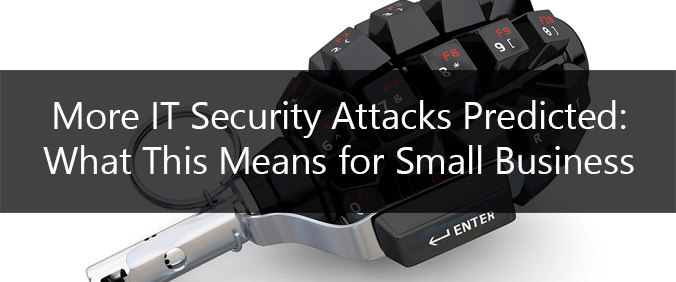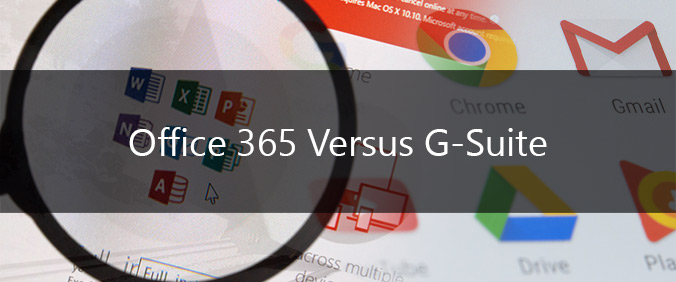
More IT Security Attacks Predicted: What This Means for Small Business
In the early 2000s, only Fortune 500 companies or government agencies had to worry about IT security attacks; however, times have changed. Today, cyber-criminals are targeting small businesses in a variety of industries, including retail, healthcare, and leisure. In 2015, 43 percent of IT security attacks were against small businesses. In 2016, the percentage increased and 2017 will be the same unless small businesses quickly change their security posture.
More IT Security Attacks for Small Businesses?
Small businesses typically have less rigorous cybersecurity protocols in place compared to large enterprises, making them easy targets for cyber-criminals. From phishing scams to improperly configured firewalls, small businesses just don’t have the resources to implement sophisticated cybersecurity defenses. In addition, small businesses have less margin for error in terms of operating capital and reputation. A major cyberattack can quickly result in bankruptcy for many entrepreneurs.
Preparing Small Business for IT Security in 2017
As Information Management states, “in the the world of cyber security, 2016 was a banner year—and not in a good way.” Here are several vulnerabilities that small businesses—and indeed all businesses—will face in the year to come:
- Concern about financial crimes resulting from company data breaches. Consumers need to feel sure that companies with which they do business are able to secure consumer information, such as banking and personally identifiable information.
- Increased scrutiny from business partners. Many small businesses rely on partnerships with larger organizations. Faced with pressure from federal and state legislation “requiring banks to manage risks … in their third-party relationships, companies in all industries will start paying a lot more attention to their business partners’ cyber security posture in 2017.”
- Threats from the Internet of Things (IoT). Smart devices, from refrigerators that tell you when you’re low on milk to self-driving cars, will pose a significant security risk. Organizations must consider how best to balance the convenience of the IoT with security.
- Biometrics: perhaps the biggest risk of all. Biometric technology, from Apple TouchID to fingerprint scanners, pose a major security risk if the fingerprints fall into the wrong hands, particularly when those fingerprints are used to verify banking information and security systems.
Keeping Your Small Business Secure in 2017
According to Forbes’s Cybersecurity Report 2017, the emphasis in 2016 was on businesses making themselves less attractive to malicious hackers. In 2017, the emphasis will be on:
- Gaining insight into IT security attacks so that businesses can improve response time and react quickly;
- Improved training for end users on the latest attack vectors and exploits to make them less vulnerable to phishing and targeted social engineering;
- Defending against zero-day attacks; and
- Staying up to date with software and operating system updates, in particular through patch-automation technologies.
Small businesses must ensure that their workers have increased awareness of how to defend against IT security attacks. But workers are only human, and that’s what cyber-criminals bank on. All Phases IT offers IT security solutions that account for the human factor to keep your business protected. Contact us today to speak with one of our security experts.



